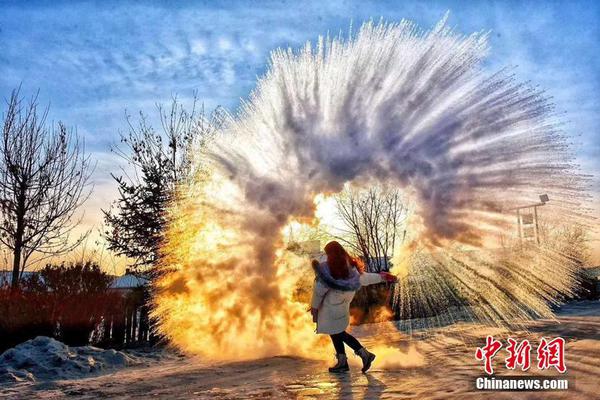If there's anything the lovable nerds in Silicon Valleyhave taught me,teen anal sex with dog videos it's that compression technology is indeed sexy.
Who am I kidding? It's not, but compression technology is very practical.
Take Google's new open source JPEG algorithm called Guetzli -- it can dramatically reduce the size of JPEG images without loss of quality, according to ArsTechnica.
SEE ALSO: The 7 things to delete first when your iPhone storage is fullAs per Google's Research Blog and GitHub, Guetzli-generated JPEG files are up to 35 percent smaller than most current JPEGs encoded with the widely-used libjpeg encoder. With smaller JPEG files, you'll not only be able to store more pictures (and most importantly: selfies) on your phone and computer, but websites that use Guetzli-encoded JPEGs would also (at least, in theory) load faster.
If all of this sounds familiar -- relax, you're not losing your mind. In 2010, Google developed WebP, a new image format that could display pictures that are up to 34 percent smaller than JPEGs.
Unfortunately, WebP didn't gain much traction because it was (and still is) only supported by Chrome and Opera. Safari, Firefox and Internet Explorer never bothered to support WebP, leaving it to essentially die.
Guetzli-generated photo files have no such incompatibility issues. It'll display in all browsers because they're just regular JPEG files.
How exactly does Guetzli create smaller JPEGs? Google Research's explanation is highly technical:
The visual quality of JPEG images is directly correlated to its multi-stage compression process: color space transform, discrete cosine transform, and quantization. Guetzli specifically targets the quantization stage in which the more visual quality loss is introduced, the smaller the resulting file. Guetzli strikes a balance between minimal loss and file size by employing a search algorithm that tries to overcome the difference between the psychovisual modeling of JPEG's format, and Guetzli’s psychovisual model, which approximates color perception and visual masking in a more thorough and detailed way than what is achievable by simpler color transforms and the discrete cosine transform.
In plain English, as ArsTechnicawrites, Guetzli, like all JPEG encoders, tries to "reduce a large amount of disordered data, which is hard to compress, into ordered data, which is very easy to compress." Smaller files are achieved by blurring together pixels that are similar, but only just enough to not distort the overall image's structure.
Google says it asked people whether they preferred libjpeg-encoded JPEGs or Guetzli JPEGs and most picked the latter.
See for yourself:
 Original image has been replaced. Credit: Mashable
Original image has been replaced. Credit: Mashable  Original image has been replaced. Credit: Mashable
Original image has been replaced. Credit: Mashable The only downside to Guetzli is that it's slower to encode JPEGs than with libjpeg. But since the files are so much smaller and there's no real loss in image quality, Google says it's worth the tradeoff.
Topics Google
(Editor: {typename type="name"/})
 NYT Strands hints, answers for July 19
NYT Strands hints, answers for July 19
 CrowdStrike outage is still causing hundreds of flight cancellations daily
CrowdStrike outage is still causing hundreds of flight cancellations daily
 Best ice cream maker deal: Ninja Creami Deluxe deal
Best ice cream maker deal: Ninja Creami Deluxe deal
 Best Apple deal: Save $19 on AirTag 4
Best Apple deal: Save $19 on AirTag 4
Acupuncture for pets is on the rise
 As the veterinary assistant holds down a year-old black tabby named Miso, she strokes his chin, and
...[Details]
As the veterinary assistant holds down a year-old black tabby named Miso, she strokes his chin, and
...[Details]
X is developing a tool to block links in replies to cut down on spam
 X is developing a new tool that'll allow users to block links in replies, which could help cut down
...[Details]
X is developing a new tool that'll allow users to block links in replies, which could help cut down
...[Details]
NYT Strands hints, answers for July 23
 If you're reading this, you're looking for a little help playing Strands, the New York Times' elevat
...[Details]
If you're reading this, you're looking for a little help playing Strands, the New York Times' elevat
...[Details]
Prime Day deals still available as of July 18
 Table of ContentsTable of ContentsUPDATE: Jul. 18, 2024, 4:10 p.m. EDT This story has been updated w
...[Details]
Table of ContentsTable of ContentsUPDATE: Jul. 18, 2024, 4:10 p.m. EDT This story has been updated w
...[Details]
Harrison Ford isn't a fan of the Trump administration's climate agenda
 Harrison Ford may be Hollywood's most entertaining grumpy, old man. His penchant for blunt real talk
...[Details]
Harrison Ford may be Hollywood's most entertaining grumpy, old man. His penchant for blunt real talk
...[Details]
Best Prime Day deals under $25: Yeti Rambler mug, Samsung Galaxy SmartTag 2, and more
 UPDATE: Jul. 18, 2024, 1:35 p.m. EDT This article has been updated with the latest Prime Day deals u
...[Details]
UPDATE: Jul. 18, 2024, 1:35 p.m. EDT This article has been updated with the latest Prime Day deals u
...[Details]
CrowdStrike outage 3 days later: Where does everything stand now?
 Editor's note:Check outour oft-updated live blogfor all new developments about theMicrosoft/CrowdStr
...[Details]
Editor's note:Check outour oft-updated live blogfor all new developments about theMicrosoft/CrowdStr
...[Details]
Reports indicate Grindr outage in Milwaukee, where the RNC is
 Gay hookup app Grindr is apparently experiencing an outage in Milwaukee, where the Republican Nation
...[Details]
Gay hookup app Grindr is apparently experiencing an outage in Milwaukee, where the Republican Nation
...[Details]
Elon Musk's space Tesla actually served an engineering purpose
 Launching a Tesla Roadster into outer space may have been ridiculous, but the vehicle is far from be
...[Details]
Launching a Tesla Roadster into outer space may have been ridiculous, but the vehicle is far from be
...[Details]
NYT's The Mini crossword answers for July 20
 The Mini is a bite-sized version of The New York Times' revered daily crossword. While the crossword
...[Details]
The Mini is a bite-sized version of The New York Times' revered daily crossword. While the crossword
...[Details]
Testing Windows 10 Performance Before and After the Meltdown Flaw Emergency Patch
Prime Day deals still available as of July 18

接受PR>=1、BR>=1,流量相当,内容相关类链接。